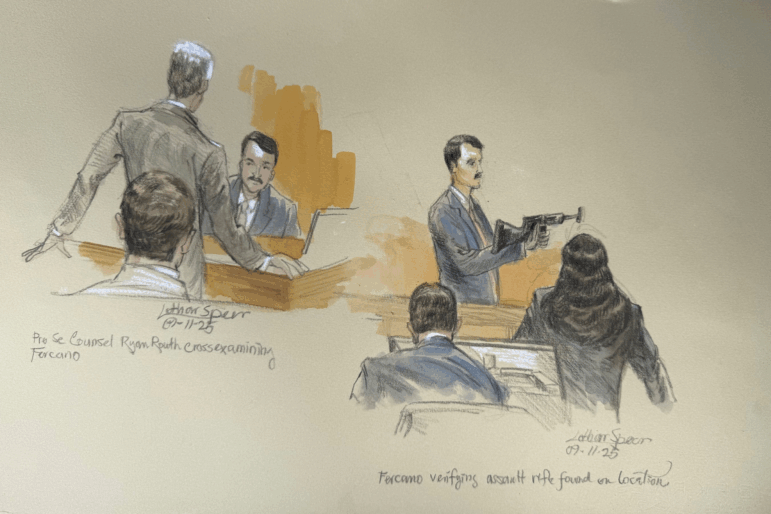FORT PIERCE, Fla. — Ryan Routh, the man charged in the attempted assassination of Donald Trump last year, rested his case on Monday after only a few hours of presenting his own defense and calling three witnesses.
Federal prosecutors rested their case Friday after spending seven days presenting 38 witnesses who detailed what they say was Routh’s planned attack against the then-presidential candidate as he golfed at his West Palm Beach club on September 15, 2024. Routh has pleaded not guilty to all five counts.
In court Monday, Routh’s lead-off witness was Michael McClay, a former Marine sniper who saw active duty in Iraq and Afghanistan. Routh called him as a gun expert but was cautioned by the court to restrict his questions to a sniper’s tactics and positioning.
Throughout the morning, U.S. District Judge Aileen Cannon repeatedly interrupted Routh as he questioned his witnesses, warning the non-lawyer to follow federal judicial rules. Routh, who is representing himself in the trial after he told Judge Cannon he was unhappy with his court-appointed lawyers, has pleaded not guilty.
McClay said that when he test-fired the SKS-style rifle left at the scene several months after Routh’s arrest, it malfunctioned. The gun fired — but the second round in the magazine repeatedly jammed. Prosecutors attributed that to the effects of acid used by investigators to recover the gun’s obliterated serial numbers.
In questioning McClay, Routh seemed to indicate that an attempt on Trump’s life may have been planned while he was golfing on the 5th hole, not the green of the 6th hole. Routh asked whether wouldn’t it be more “fitting” to use a rifle scope at 375 yards, the distance to the 5th hole, than 40 yards, the distance from the “sniper’s hide” to the 6th hole. McClay said, “Yes.”
When Routh asked his witness whether the rifle would be able to hit a target 375 yards away, the former Marine sniper said, “Depending on the skill of the shooter, yes.”
Routh’s other witnesses, two former friends from North Carolina were called to testify to what he said is his “peacefulness, gentleness and non-violence.” He became frustrated, though, by the prosecutor’s objections and Judge Cannon’s admonitions to follow judicial guidelines. The judge concluded Routh’s questioning of both witnesses after repeated warnings.
Routh said he would not testify in his own defense and rested the case. Jurors are set to hear closing arguments on Tuesday.

